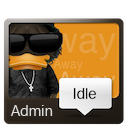Retrieving Data Using the SQL SELECT Statement
- List the capabilities of SQL SELECT statements
- Execute a basic SELECT statement
Restricting and Sorting Data
- Limit the rows that are retrieved by a query
- Sort the rows that are retrieved by a query
- Use ampersand substitution to restrict
Using Single-Row Functions to Customize Output
- Describe various types of functions
Using Conversion Functions and Conditional Expressions
- Describe various types of conversion functions
- Use the TO_CHAR, TO_NUMBER, and TO_DATE
- Apply conditional expressions
Reporting Aggregated Data Using the Group Functions
- Identify the available
- Describe the use of group functions
- Group data by using the GROUP BY clause
Displaying Data from Multiple Tables
- Equijoins and nonequijoins
- Join a table to itself by using a self-join
- Generate a Cartesian product of all rows
Using the Set Operators
- Set operators
- Control the order of rows returned
|
Using Subqueries to Solve Queries
- Subqueries
- Types of problem
- List the types of subqueries
- Single-row and multiple-row subqueries
Manipulating Data
- Data manipulation language (DML) statement
- Insert rows into a table
- Update rows in a table
- Delete rows from a table
- Control transactions
Using DDL Statements to Create and Manage Tables
- Categorize the main database objects
- Review the table structure
- List the data types that are available for columns
- Create a simple table
Creating Other Schema Objects
- Create simple and complex views
- Retrieve data from views
- Create, maintain, and use sequences
- Create and maintain indexes
- Create private and public synonyms
|











